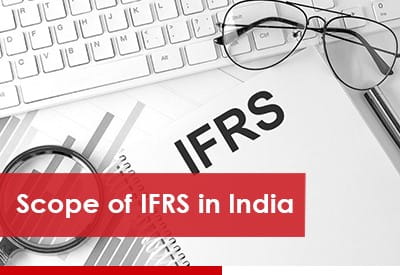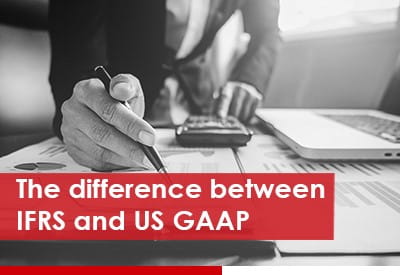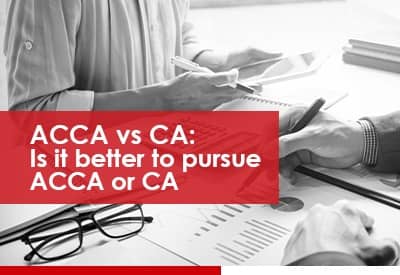CPA Vs CFA

Career Opportunities in Capital Markets
December 22, 2021
GST CAREER OPTIONS
January 12, 2022- Difference Between CPA and CFA
- Is CFA more difficult than CPA?
- Which is more in demand, CPA, or CFA?
- Is CPA valid in India?
- CPA vs CFA: Which is Better?
When it comes to pursuing a career in finance and accounting, two prominent certifications often come into play: CPA and CFA. The comparison of CPA vs CFA reveals key distinctions and considerations for aspiring professionals. Certified Public Accountant (CPA) is a designation primarily focused on accounting and auditing, emphasizing financial reporting and taxation. On the other hand, Chartered Financial Analyst (CFA) certification delves into investment management and financial analysis, covering topics such as portfolio management and asset valuation.
While both certifications require rigorous study and expertise, they cater to different aspects of the finance industry. Understanding the nuances of CPA vs CFA can help individuals determine which path aligns best with their career goals and interests.
Now let's look at the key difference between CPA and CFA
CPA vs CFA: Skills Obtained
As a CPA professional, you'll be required to perform many calculations because the role is going to be purely into accounting. Hence, the CPA course ensures that after the qualification, you become adept at crunching numbers. On the opposite hand, as a CFA charter holder, you'll develop critical thinking, analytical ability, advanced excel skills, excellent modeling skills, and acquire decision-making and communication skills.
CPA vs CFA: Duration
From the day you clear one among the 4 parts of the CPA exams, you'll have another 18 months to clear the remaining 3 parts of the course. On the opposite hand, CFA takes a touch longer as you've got to clear 3 levels of examinations one after the opposite and mandatory 4 years of professional experience. Given that the work experience is often gained even while pursuing the CFA course, you'll complete the course during a span of 4 years.
CPA vs CFA Eligibility or Experience Required
If you would like to become a CPA-qualified professional, then you would like to possess a minimum of a bachelor’s degree or related professional credential alongside two years of labor experience in a relevant field. On the other hand, to become a CFA charter holder, you need a bachelor’s degree and four years of relevant work experience.
CPA vs CFA: Syllabus
The syllabus for CPA primarily revolves around the four parts – regulation, audit & attestation, business environment & concepts, and financial accounting & reporting. Some of the main subjects covered in the course include economic concepts & analysis, financial statement accounts, entity & individual federal taxation, professional responsibilities ethics & general principles, corporate governance etc.
The CFA program syllabus is divided into three levels, wherein Level I covers topics on financial principles, Level II focuses on financial analysis & accounting, and Level III delves deeper into portfolio management. Some of the main subjects covered in the course include financial reporting & analysis, equity valuation, quantitative methods, corporate finance, economics, portfolio management, derivatives, fixed income, alternative investments, ethical & professional standards etc.
CPA vs CFA: Salary and Career Opportunity
When it comes to career opportunities, both CPA and CFA offer promising prospects for individuals who aspire to excel in the financial sector. A CPA qualified professional can typically work as a public accountant, consultant auditor, forensic accountant, securities analyst, and more. On the other hand, a CFA charter holder can pursue a career as a research analyst, portfolio manager, consultant, corporate financial analyst, investment banking analyst, financial advisor, and similar roles.
In the US, the salary range for CPA professionals is between $49,000 and $113,000, with a median salary of approximately $68,000. In contrast, CFA charter holders can earn a salary within the range of $56,000 and $120,000, with a median salary of $95,000. These figures show that both CPA and CFA offer competitive salaries, and the choice between the two depends on an individual's interests and career goals.
CPA vs CFA: Fees and Passing Rates
The cost of a CPA license and a CFA charter in terms of exam fees is sort of comparable. The overall cost (including exam and application fees) of CPA qualification stands at around $1,500. On the other hand, each level of the CFA exam’s cost lies in between $700 (early registration) to $1,000 (late registration). Further, you need to pay a one-time registration fee of $450, which means that the CFA program’s overall cost lies in the range of $2,550 and $3,450.
Based on the historical passing rates, it are often said that the CFA exams are far more difficult than the CPA exams. During 2020, the overall passing rate of the CPA exams was more than 50% given that all the four parts reported passing rates over 55%. During June 2019, the pass rates for CFA exams Level I, Level II, and Level III stood at 41%, 44%, and 56% respectively. Since a candidate has to clear each level one after the other, it can be approximated that only around ~10% (= 41% * 44% * 56%) of the candidates who started with Level I comes out successful after completing Level III.
CPA vs CFA: Exam Availability
The upcoming CPA exams are going to be conducted as a part of the continual Testing model wherein the candidates are going to be allowed to write down the exams throughout the year. The schedule of the upcoming CFA exams for 2021 is as follows:
| Level I | Feb 16- Mar 1 | May 18-24 | Aug 24-30 | Nov 16-22 |
| Level II | May 25- Jun 1 | Aug 31- Sep 4 | ||
| Level III | May 25- Jun 1 | Nov 23-25 |
Is CFA more difficult than CPA?
The level of difficulty between the CPA and CFA can vary based on individual strengths and weaknesses. CPA is considered a more straightforward exam, as it focuses on specific accounting knowledge and skills, whereas the CFA program is more comprehensive, with a broader curriculum that covers a range of topics, including investment management, financial analysis, and ethical and professional standards. The CFA program is also known for its demanding curriculum and level of difficulty.Which is more in demand, CPA or CFA?
The demand for both Certified Public Accountant and Chartered Financial Analyst professionals varies depending on the industry and specific job market. In accounting and finance, CPAs are in high demand, as they are considered experts in accounting, taxation, and auditing, which are critical areas for businesses. On the other hand, CFAs are highly valued in the investment management and financial analysis industries, as they bring expertise in financial modeling, risk management, and portfolio management.Is CPA valid in India?
CPA is not a valid certification in India, as the title and the certification process are specific to the United States. In India, the equivalent certification is the Chartered Accountant (CA) designation, which is offered by the Institute of Chartered Accountants of India. In order to practice as an accountant in India, an individual must hold a CA certification from the Institute of Chartered Accountants of India.CPA vs CFA : Which is Better?
When considering whether to pursue a CPA or CFA credential, it is crucial to determine the career path you wish to pursue. Both the CPA and CFA designations offer unique and specialized expertise in the fields of accounting and investments, respectively. Making an informed decision regarding your career requires careful consideration of the specific direction you want to take. Whether you seek to focus on accounting-related roles or delve into the intricacies of investment management, assessing your goals and aspirations will help you choose between the CPA and CFA credentials. Feel free to reach out to us for further guidance in making this important decision.




1 Comment
I could not resist commenting. Perfectly written!